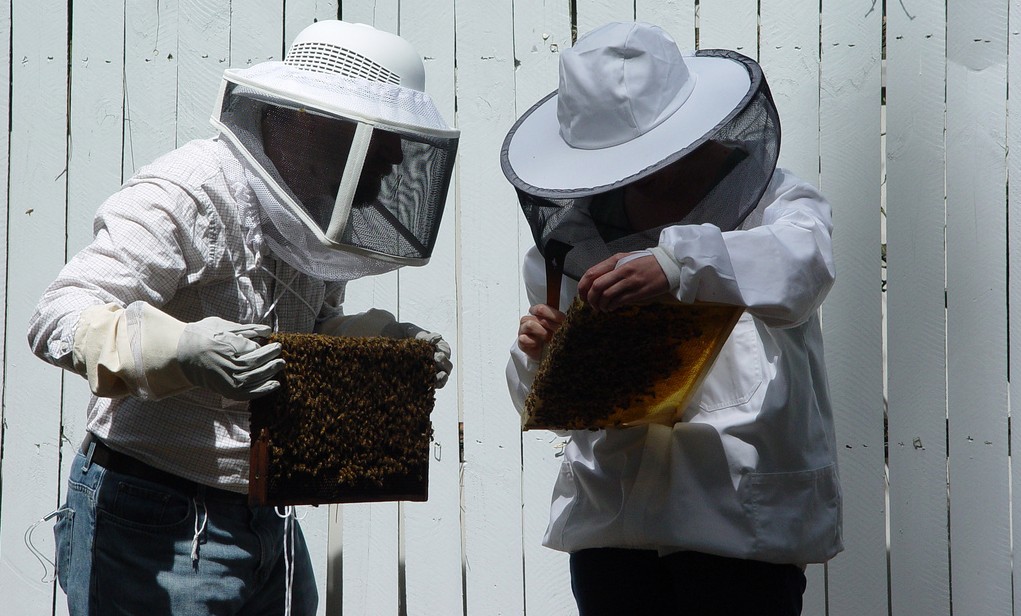By Matt Sayre
I keep honeybees at the small, organic family farm we’re growing in Hinesburg. It’s fun, rewarding work and my kids love helping take care of our two hives. I’m not very good at it, but somehow the honey we’ve harvested has been truly outstanding. I’m basing that claim on the many reports we’ve received from people who love honey and who are pretty picky about it.
I was recently blown away by an amazing new innovation in beekeeping called the Flow Hive. According to a recent online story and video, this revolutionary technology takes “all the hard work out of harvesting, and Flow Hive’s frames don’t need to be pulled out of the hive. The cells are arranged upon channels that open with every turn of the tap. Voila, the honey flows down.”
A couple of other people thought it was pretty neat, too. The father-and-son team who created it raised $70,000 in five minutes after posting it online, and crowd-sourced close to $6 million in two weeks to manufacture and distribute these new hives. I want some.
The Growth of Beekeeping
This leads me to think about the expansion of beekeeping this might enable worldwide, dramatically increasing the production of one of the most healthful sweeteners known to man and bringing new pollinators to ecosystems throughout the planet. With the decline of bees globally, this should be a great thing.
I wonder though, what is the right scale for human management of honeybees?

The diversity of native pollinators in ecosystems worldwide is essential for resilience. How will a global expansion of beekeeping, which is limited to a relatively narrow variety of honeybees, impact the native pollinators and the ecosystems they help sustain? Maybe I’m just overthinking this. Maybe there will never be an issue due to an expansion of human-controlled pollinators.
The Flow Hive could be technology that is truly transformative for the beekeeping industry. Growth of technologies such as this do have impacts and often unintended and potentially unpredictable consequences. Now that this technology is going to market, should the market alone determine how many hives are deployed worldwide?
How will this effect the commercial beekeeping industry?
The Flow Hive seems to make beekeeping so simple that it’s easy to envision these hives becoming a common household resource. What impact will that have? Sure, this could increase the availability of honey and enable greater self-sufficiency, but are there potential downsides, such as driving the cost of honey down and crushing the commercial producers’ livelihood?
I’m glad to be part of a research university where these types of questions can be thoughtfully and scientifically considered. Questions like these call for application of the science of complex systems and ecological economics, as well as for pollinator research, like that being done by the Gund Institute for Ecological Economics to help guide decision-making proactively.
I think for now I’m OK to be growing my beekeeping operation by adding a couple of these innovative new hives, if only I could get some. Due to overwhelming demand, they’re not taking orders currently.
(Main image: F. Gerdes/Flickr Creative Commons)
Matt Sayre is a senior program developer at The University of Vermont Continuing and Distance Education. He develops educational programs focused on sustainable food and agricultural systems, and his family is growing their own organic fruit farm and operating a gluten-free farm bakery in Hinesburg.




